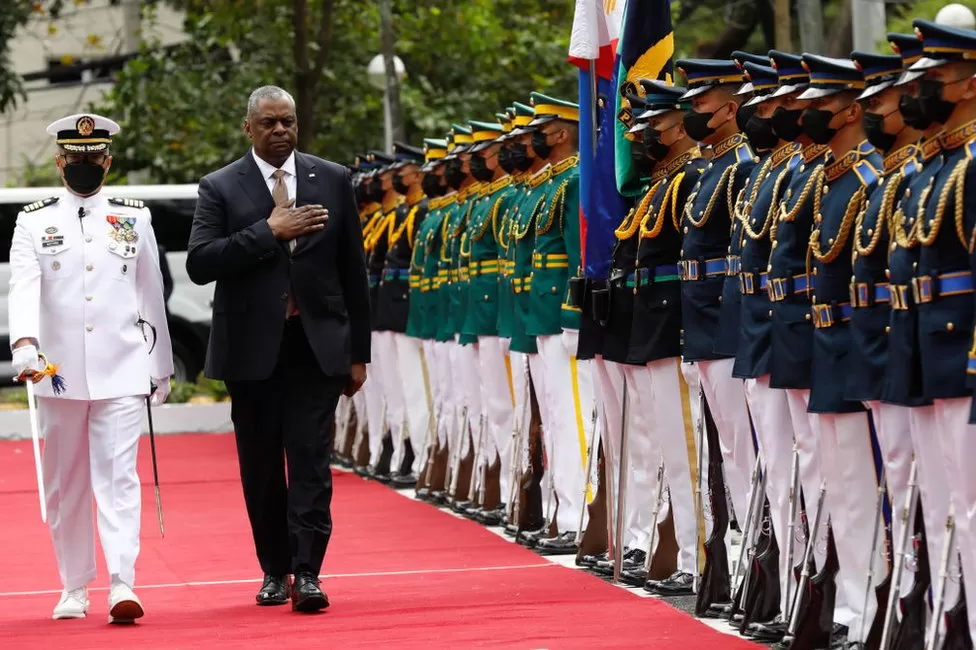To counter China’s aggressive territorial posturing in the South China Sea, the Philippines agreed to provide the United States with expanded access to its military bases, implying US forces will have a greater strategic footing on the southeastern edge of the South China Sea close to self-ruled Taiwan, CNN reported.
According to CNN, the newly announced deal will give the US access to four more locations under an Enhanced Defence Cooperation Agreement (EDCA) dating 2014, allowing the US to rotate troops to a total of nine bases throughout the Philippines. The US has in recent months, stepped up efforts to expand its Indo-Pacific security options amid rising concerns over China’s growing activities in the region.
Advertisement
US Defense Secretary Llyod Austin, while speaking during a visit to the Philippines capital Manila on Thursday, said the US and the Philippines remained committed to strengthening their mutual capacities to resist armed attack.
“That’s just part of our efforts to modernize our alliance. And these efforts are especially important as the People’s Republic of China continues to advance its illegitimate claims in the West Philippine Sea,” Austin said, as quoted by CNN.
He, however, did not give the location of the bases to which the US military will gain new access.
The announcement which came on Thursday followed a wave of high-profile US military agreements throughout the Indo-Pacific region, including plans to share defence technologies with India, and plans to deploy new US Marine units to Japanese islands.
Last week, the US Marine Corps opened a new base on Guam, a strategically important US island east of the Philippines. The location, known as Camp Blaz, is the first new Marine base in 70 years and one day is expected to host 5,000 Marines.
According to CNN, increased access to military bases in the Philippines would place US armed forces fewer than 200 miles south of Taiwan, the democratically ruled island of 24 million that the Chinese Communist Party claims as part of its sovereign territory despite never having controlled it.
Chinese leader Xi Jinping has refused to rule out the use of military force to bring Taiwan under Beijing’s control, but the Biden administration has been steadfast in its support for the island as provided by the Taiwan Relations Act, under which Washington agrees to provide the island with the means to defend itself without committing US troops, according to CNN.
US Vice President Kamala Harris had in November, visited the Philippines to discuss expanded US base access with the recently elected President Ferdinand “Bong Bong” Marcos Jr. Her visit, according to experts, sent a clear message to Beijing that the Philippines is moving closer to the US, reversing the trend under the previous president, Rodrigo Duterte.
A mutual defence treaty signed in 1951 binds Washington and Manila. This makes it the oldest bilateral treaty alliance in the region for the United States.











